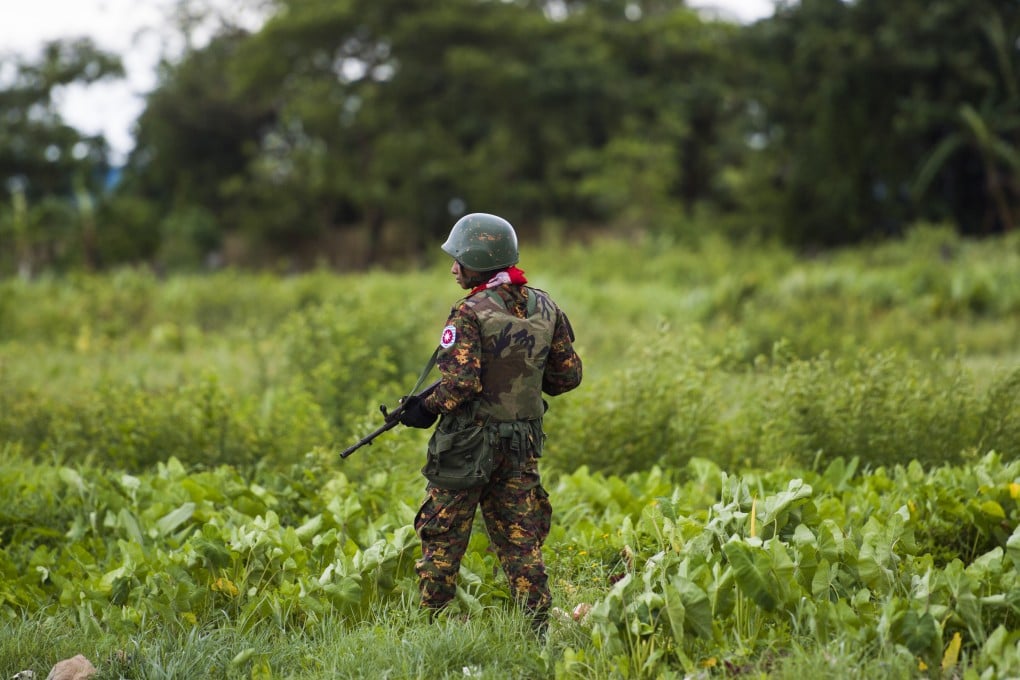Myanmar’s Arakan rebels cement control over Rakhine state while the junta’s distracted
- A nationwide rebellion against last year’s coup has made space for the Arakan Army and its political wing to entrench de facto control over Rakhine state
- As residents pay the rebel administration taxes and use its courts, the junta says it’s unfazed – but such acts of usurpation would never normally be tolerated

It is a contrast to what’s happening in the country’s northwestern Rakhine state. There, residents like former village administrator Khaing Maung San say they are experiencing a state of relative calm that’s at odds with the mounting violence and economic disruption engulfing the rest of the country.
That state of affairs is a result of a ceasefire dating back to November 2020 – three months before Min Aung Hlaing’s coup – between the Tatmadaw and the Arakan Army, Rakhine’s main rebel group which seeks greater self-autonomy for the state.

With the Tatmadaw preoccupied fighting anti-junta forces across multiple fronts, the Arakan Army’s political wing, the United League of Arakan (ULA), has moved at a lightning pace over the past 12 months to entrench its de facto administrative and judicial control of some 60 per cent of the majority-Buddhist region.
In a rare international media interview this month, Arakan Army leader Major General Twan Mrat Naing said his 30,000-odd force had their “daggers drawn” amid an “uncertain” ceasefire with the junta.
“It’s uncertain how long the ceasefire will last, but we wish to have a meaningful ceasefire for mutual benefit and interests,” Twan Mrat Naing told Asia Times.
The Arakan Army major general, who at 43 is among the youngest rebel commanders in the country, said the group had established their “own administration with judicial, taxation, public security branches and other governmental institutions” – infuriating the junta.
He had decided to take up arms, he said, because of a personal conviction that “our sovereignty and a rightful political status for Arakan” must be reclaimed and restored.
